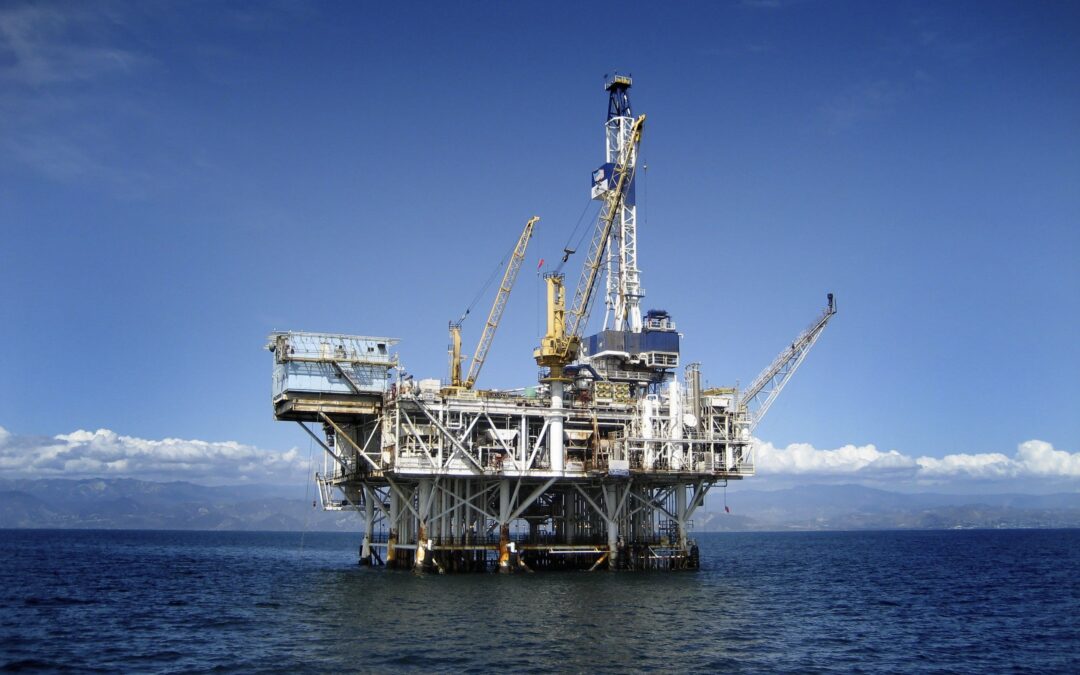The oil and gas sector is a major contributor to the Nigerian economy. Oil was first discovered in Nigeria at Oloibiri in 1956 by Shell-BP after half a century of exploration in Nigeria.[1] The discovery of oil created the need for legislations and regulations to oversee the exploration of oil in Nigeria. As an item in the Exclusive Legislative List, the government at the federal level is vested with the responsibility of regulating the Oil and gas sector in Nigeria.
This article, seeks to examine some key oil and gas legislations in Nigeria. The following are some of the key oil and gas laws and regulations in Nigeria:
- The 1999 Constitution of the Federal Republic of Nigeria: The 1999 Constitution of Nigeria is the supreme law of the country and provides the framework for governance and the distribution of powers among various arms of government. It also sets out the rights and responsibilities of citizens and institutions within the country. As Nigeria is a major oil and gas producer, the constitution addresses the oil and gas sector and its governance.
Some key provisions of the 1999 Constitution related to the oil and gas sector include:
a. Exclusive Federal Jurisdiction: The constitution vests ownership and control of all minerals, mineral oils, and natural gas in, under, or upon any land in Nigeria solely in the government of the Federation. This means that the federal government has exclusive jurisdiction over the exploration, production, and regulation of oil and gas resources in the country.[2]
b. Revenue Sharing: The constitution outlines the principles for sharing revenue generated from the exploitation of natural resources, including oil and gas, between the federal government and the states. The revenue allocation formula is periodically reviewed by the Revenue Mobilization Allocation and Fiscal Commission (RMAFC) to ensure equitable distribution.
c. Federal and State Powers: While the federal government has overall control of the oil and gas sector, the constitution also allows state governments to participate in the ownership and administration of the minerals and mineral oils within their respective states.
d. Community Rights: The constitution recognizes the rights of individuals and communities to benefit from the exploitation of mineral resources in their areas. It emphasizes the importance of fair compensation, adequate resettlement, and environmental protection in cases where oil and gas activities affect local communities.
e. Environmental Protection: The constitution emphasizes the need for environmental protection and sustainable development in the oil and gas sector. It obligates the government to take measures to prevent environmental pollution and degradation caused by oil and gas operations.[3]
It’s important to note that the practical implementation of these constitutional provisions depends on various laws, regulations, and policies enacted by the government. Additionally, some aspects of the oil and gas sector may be governed by separate laws, such as the Petroleum IndustryAct(PIA) 2021, which aims to overhaul and modernize the governance of the petroleum industry in Nigeria. The PIB was passed by the Nigerian National Assembly and was assented by the former president Muhammad Buhari in 2021.
2. Petroleum Industry Act (PIA) 2021 : Nigeria’s Petroleum Industry Act(PIA) 2021, which was recently signed into law, is one of the most audacious attempts to overhaul the petroleum sector in Nigeria[4]. The Act seeks to provide legal, governance, regulatory and fiscal framework for the Nigerian Petroleum Industry. Despite being a major source of revenue, the oil sector lags other sectors in terms of GDP contribution.
The Petroleum Industry Act 2021 contains 5 Chapters, 319 Sections and, 8 Schedules dealing with Rights of Preemption; Incorporated Joint Ventures; Domestic Base Price and Pricing Framework; Pricing Formula for Gas Price for the Gas Based Industry; Capital Allowances; Production Allowances and Cost Price Ratio Limit; Petroleum Fees, Rents and Royalty; and Creation of the Ministry of Petroleum Incorporated.
Petroleum Industry Act repeals about 10 laws including the Associated Gas Reinjection Act; Hydrocarbon Oil Refineries Act; Motor Spirit Act; NNPC (Projects) Act; NNPC Act (when NNPC ceases to exist); PPPRA Act; Petroleum Equalisation Fund Act; PPTA; and Deep Offshore and Inland Basin PSC Act. It amends the Pre-Shipment Inspection of Oil Exports Act while the provisions of certain laws are saved until termination or expiration of the relevant oil prospecting licenses and mining leases including the Petroleum Act, PPTA, Oil Pipelines Act, Deep Offshore and Inland Basin PSC Act.
Some key Provisions (Innovations and Benefits) of the PIA;
- The PIA overhauls the regulation and governance of the oil and gas industry. It provides for two regulatory agencies. The PlA addressed the Host Community issue with oil & Gas companies by stipulating that existing host community projects must be transferred to the Host Community Development Trust Fund (HCDTF), [5]and each settlor (or oil license holder) must make an annual contribution of an amount equal to 3 percent of its operating expenditure for the relevant operations from the previous year.[6]
- The Act creates an Upstream Regulatory commission responsible for the technical and commercial regulation of the upstream petroleum operations, and the Nigerian Midstream and Downstream Petroleum Regulatory Authority responsible for the technical and commercial regulation of the midstream and downstream operations in Nigeria. The Commission and Authority are exempted from the provisions of any enactment relating to the taxation of companies or Trust Funds.[7]
- The PIA imposes up to 1% levy on the wholesale price of petroleum products sold in the country (0.5% each for the Authority Fund and Midstream Gas Infrastructure Fund)
- It incorporated a commercial and profit focused NNPC Limited under CAMA with ownership vested in the Ministry of Finance Incorporated (and Ministry of Petroleum Incorporated) on behalf of the Federation to take over assets, interests and liabilities of NNPC.[8]
- By privatization of NNPC, the act seeks out to avoid economic distortions and ensure a competitive market for the sale and distribution of petroleum products and natural gas in Nigeria; and avoid cross-subsidies among different categories of The Commission is required to develop a model licence and model lease to include a carried interest provision giving NNPC Limited the right to participate up to 60% in a contract.
- The PIA introduced a new tax regime by repealing Petroleum Profit Tax and replacing it with the hydrocarbon tax and also introducing a tax on the income of oil companies. Under this new fiscal regime, hydrocarbons -including crude oil, condensates, and natural gas liquids produced from associated gas-will be subject to taxation. Crude oil from deep offshore is however excluded from the tax.[9]
3. Nigerian Oil and Gas Industry Content Development Act (2010): This law aims to promote the development of Nigerian content in the oil and gas industry. It requires operators to give preference to Nigerian goods, services, and personnel in their operations.[10]It is also known as the Nigerian Local Content Act and is a significant piece of legislation aimed at promoting the participation of Nigerian companies and citizens in the oil and gas sector. It was enacted in 2010 to enhance local content development, increase indigenous participation, and foster the transfer of technology and skills within the Nigerian oil and gas industry.
Key objectives and provisions of the Nigerian Oil and Gas Industry Content Development Act include:
- Local Content Development: The Act seeks to increase the level of local content in all aspects of the oil and gas industry, including exploration, production, engineering, procurement, and construction activities. It encourages the use of Nigerian goods and services in these operations to create jobs and promote economic development.[11]
- Nigerian Content Development Board (NCDMB): The Act establishes the Nigerian Content Development Board as the regulatory body responsible for overseeing the implementation and enforcement of local content policies in the oil and gas sector.[12]
- Nigerian Content Plan: The Act requires operators and contractors in the oil and gas industry to submit Nigerian Content Plans as part of their bidding processes. These plans detail how they intend to incorporate local content in their operations and projects.[13]
- Research and Development: The Act emphasizes the need for research and development initiatives that will enhance technological capabilities within the Nigerian oil and gas industry.[14]
- Training and Capacity Development: To promote skill transfer and capacity building, the Act mandates operators to provide training opportunities for Nigerians in various aspects of the industry.[15]
- Nigerian Content Fund: The Act establishes the Nigerian Content Development Fund to support the development of local capacity and capability in the oil and gas industry. This fund is primarily sourced from contributions by operators and contractors.[16]
- Reporting and Compliance: Operators and contractors are required to submit regular reports to the NCDMB, outlining their compliance with local content requirements and objectives.
- Joint Venture Partnerships: The Act encourages joint venture partnerships between Nigerian companies and international oil companies to foster technology and knowledge transfer.
- The Nigerian Oil and Gas Industry Content Development Act represents a significant effort by the Nigerian government to enhance the participation of its citizens and companies in the oil and gas sector, while also promoting technology transfer and economic development within the country. It complements other regulations and laws governing the oil and gas industry in Nigeria,
- Nigerian Gas Master Plan (2008): Although not a law itself, it is a comprehensive plan that outlines the government’s strategy for the development and utilization of natural gas resources in Nigeria.
- Environmental Guidelines and Standards for the Petroleum Industry in Nigeria (EGASPIN): This document provides environmental regulations and standards that oil and gas companies must adhere to in their operations to protect the environment.
- National Oil Spill Detection and Response Agency (NOSDRA): In order to address the environmental issues caused by oil spills in Nigeria and to establish a legislative framework for coordinating the identification, reporting, and response to such accidents, the NOSDRA Act was passed into law. It gives NOSDRA the authority to take the required steps to stop and lessen the effects of oil spills on the environment and impacted populations.
- Establishment and Composition: The act would define the composition, governing framework, and reporting lines of the National Oil Spill Detection and Response Agency as a government entity.[17]
- Roles and Responsibilities: The legislation would specify the duties of NOSDRA. Detecting, reporting, and responding to oil spills and other associated environmental incidents is part of the NOSDRA’s mandate. It may also specify the agency’s authority to cooperate with other governmental organizations, oil firms, and stakeholders as well as its enforcement capabilities.[18]
- Resources and Funding: The act may outline the methods for paying for NOSDRA’s operations, such as provisions for budgetary allotments, fees, or contributions from pertinent parties.
- Reporting and Reaction to Oil Spills: The act would probably set forth the standards for reporting oil spills as well as the steps to take in the event of one, including the creation of spill contingency plans.[19]
- Environmental Impact Assessment: As part of their operations to stop oil spills and safeguard the environment, oil firms may be required by the act to conduct environmental impact studies and create mitigation plans.
- Sanctions, Penalties and Enforcement: The legislation provides fines and consequences for failing to abide by its rules and regulations.[20]
In conclusion, the Petroleum Industry Act 2021 has changed the Legal frame work of the Oil and gas sector by repealing and providing a containing comprehensive provisions to regulate the oil and gas sector in Nigeria.
By: Faidat Balogun
Faidat is Associate in the firm of Adedunmade Onibokun & Co.
[1] Utigue and Ogbeibu, 2007, Climate Change and Poverty: Sustainable Approach in the Niger Delta Region of Nigeria.
[2] Section 249(n) of 1999 Constitution of the Federal Republic of Nigeria as amended.
[3] Section 20, Chapter II of the 1999 Constitution of the Federal Republic of Nigeria as amended.
[4] The Petroleum Industry Act, Redefining the Nigerian Oil and gas Landscape, a publication PWC Nigeria.
[5] Section 235, Chapter of the Petroleum Industry Act
[6] Highlights and benefits of Petroleum Industry Act,2021 by Aziza.com.ng
[7] Section 4, Part III of the Petroleum Industry Act.
[8] Section 53 Part V, Chapter III of the Petroleum Industry Act.
[9] Section 260 Part II Chapter 4 of the Petroleum Industry Act.
[10] Section 3 Nigerian Oil and Gas Industry Content Development Act
[11] Section 10 Nigerian Oil and Gas Industry Content Development Act
[13] Section 4 Nigerian Oil and Gas Industry Content Development Act
[14] Section 36 Nigerian Oil and Gas Industry Content Development Act
[15] Section 28 Nigerian Oil and Gas Industry Content Development Act
[16] Section 104 Nigerian Oil and Gas Industry Content Development Act
[17] Section 1, NOSDRA Act.
[18] Section 5, Part III, NOSDRA Act
[19] Se tion 6, NOSDRA Act
[20] Se tion 19, NOSDRA ACT


